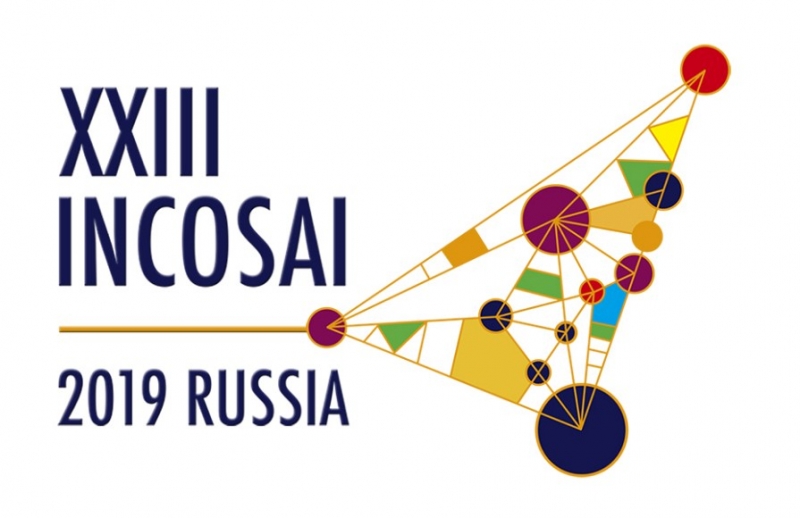
Strategic Partnership: SAI Contributions To National Goal Achievement
The upcoming XXIII International Organization of Supreme Audit Institutions (INTOSAI) Congress in Moscow, Russia, will feature two primary themes—Theme I emphasizes “Information Technology to Develop Public Administration,” and Theme II highlights “The Role of Supreme Audit Institutions (SAIs) in Achieving National Priorities and Goals.”
Since February 2018, the Theme II Expert Group, consisting of 22 SAIs, has been paving the way for fruitful INTOSAI discussions on these strategic topics. Developing thematic key ideas and materials included collecting feedback from the INTOSAI community, capturing multifaceted SAI experiences, and uncovering new ways to increase the value and benefits SAIs contribute to global public policy changes. This article largely builds upon replies received from a questionnaire distributed to the INTOSAI community with the Theme II Principal Paper. Sixty-three SAIs responded.
The adoption of the 2030 Agenda increased requirements on efficiently managing public resources. The 2030 Agenda also urged coordinated efforts among all public entities, private sector organizations and civil society to ensure implementation of the Sustainable Development Goals (SDGs), an ambitious set of 17 global goals.
SAIs possess unique accumulated knowledge that can be used to drive progress in public administration and proactively contribute to SDG achievement. This expertise opens unprecedented opportunities to act as strategic national partners where SAIs can help examine root causes of management or policy delivery gaps. This implies the potential for a whole-of-government approach to assessing national policy effectiveness and efficiency, particularly in terms of contributing to strategic priorities, evaluating policy coherence, and auditing entities responsible for national strategic development. These activities, closely associated with SAI risk identification capabilities, may raise awareness of systemic policy delivery risks while also assisting public entities in addressing these risks.
Within the INTOSAI community, there is growing recognition that helping to mitigate risks and formulate solutions to complex public resource management issues can lead to greater contributions to good governance. Establishing an efficient risk-management system facilitates proactive error avoidance rather than focusing on retrospective measures—indicating further development of SAI advisory capabilities while maintaining their independence and within their respective audit authorities. This strategic approach calls for SAIs to provide recommendations on past, as well as future, activities—what has already been done and what can be done to achieve long-term national and supranational goals and priorities.
While auditing remains the core function of SAIs, the scope is often limited by time, staff and other resource availability. Using audit practices, accumulated data and knowledge as a foundation, SAIs can contribute to good governance by providing non-audit products, such as guidance, position papers, and analytical research on major economic and social trends. Such activities may aid in promoting best management practices, identifying high-priority topics, and providing organizations with a better understanding of varying stakeholder requirements. Developing SAIs’ analytical potential can also be beneficial in conducting audit activities, such as extending preliminary audit phases to include in-depth topic and/or audited entity research, which may save field work time, improve high-risk area identification, and better concentrate auditor efforts.
To enhance analytical capabilities, SAIs can take advantage of the data revolution and the opportunities it presents, such as auditing big data, as these audits enable SAIs to correlate findings from various entities; produce complex, whole-of-government conclusions; and combine off-site, on-site and mixed data collection approaches to monitor major policy implementation in real time. Familiarization with advanced data analytics tools and techniques are crucial for “auditors of the future,” who will also need to integrate data from various sources and present findings in a user-friendly way by employing advanced data visualization tools, foresight techniques, and crosscutting expertise. Essential to this shift are auditors who possess experimental mindsets, solid problem-solving skills, multifaceted academic and working backgrounds, and a readiness for continuous learning and peer-to-peer knowledge sharing.
Many SAIs recognize that audit impact depends, to a large extent, on audited entity interaction, thus making communication and emotional intelligence skills critical to success. Auditees are generally more receptive to audit report findings when SAIs openly communicate throughout the audit process and assist in identifying potential solutions to their findings. Two-way, collaborative interaction through providing informational presentations, collecting auditee feedback, and following up on recommendations can greatly increase trust in SAIs’ activities and contribute to achieving expected public policy outcomes.
The Theme II discussion session scheduled at the upcoming XXIII INTOSAI will provide further in-depth elaboration on how SAIs can strategically contribute to national goal achievement. The discussion, designed to help SAIs facing related capacity and resource limitation challenges, may result in the creation of a new paradigm of performance-focused accountability — an innovative, strategic method to highlight complex outcomes of interlinked policies; identify emerging gaps; shed light on possible solutions to difficult problems; and seize new opportunities to make a difference.
by Dmitry Zaitsev, Accounts Chamber of the Russian Federation



